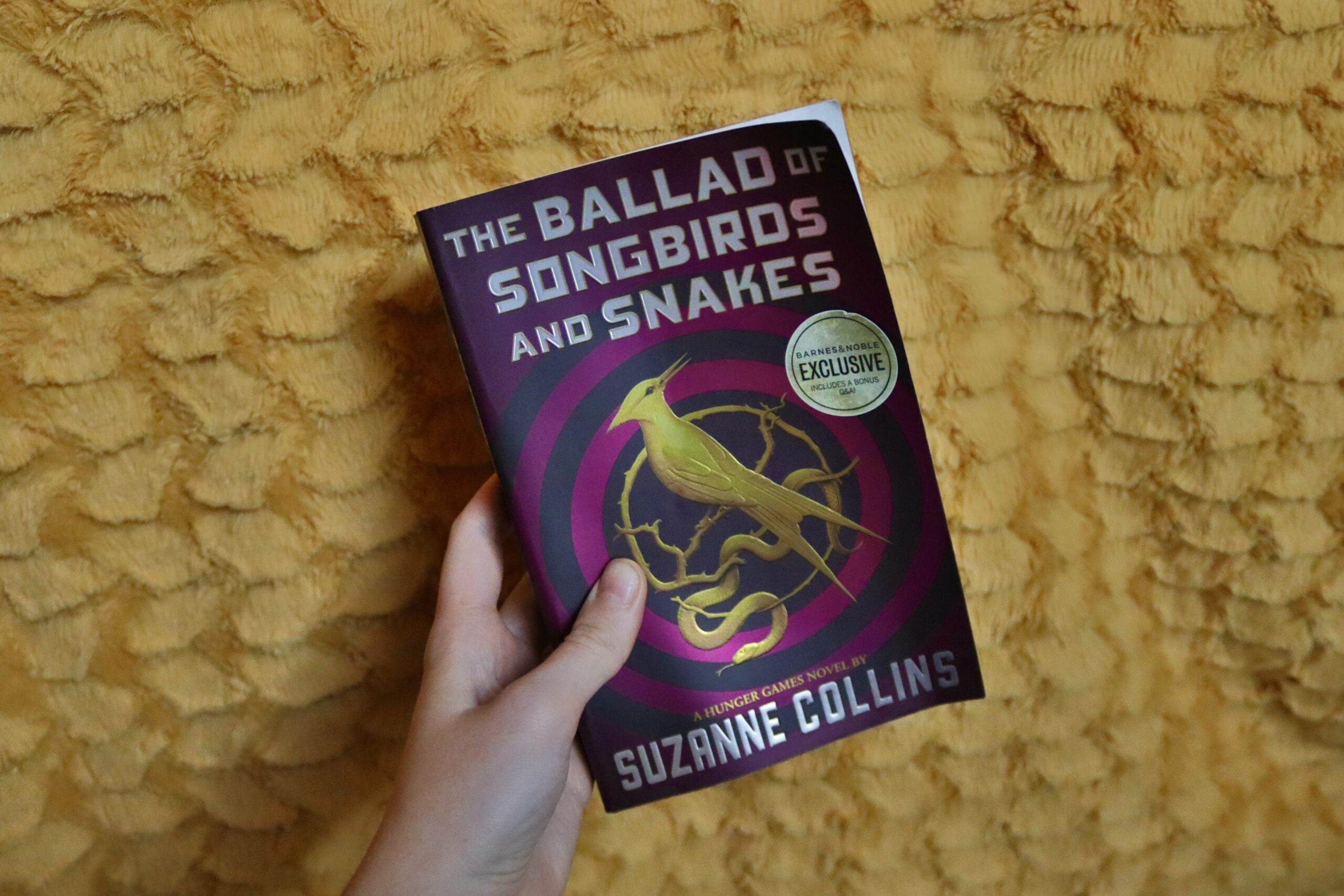The Ballad of Songbirds and Snakes – Suzanne Collins
Snow lands on top.
Coriolanus Snow is a mentor in the tenth annual Hunger Games. This is the first year mentors have been introduced; the Capitol is incentivizing innovation among their youth within the Games. The Snow family, once prestigious, is now poor and destitute following the war. After years of starvation, rations, and bomb raids, the people of Panem are struggling to find their footing. How do you cope with a postwar society?
Villain origin stories are delectable. However, most of the time they end up painting the villain as a victim of his or her surroundings. They weren’t evil! It was their environment! Oh, have pity for their poor, unfortunate souls.
Suzanne Collins did not take this approach with the monster we all know as President Snow.
The book opens with Coriolanus making a struggle meal of boiled cabbage. The stark image contrast against his appearance in the original trilogy drew me in. The Snow family has fallen alongside District 13, their source of income gone. Tigris, his kindhearted cousin, overextends herself to make sure they have food and some semblance of comfort.
Coriolanus, looking at the University dues and wishing for greatness, is awash in insecurity and fear. He assumes that everyone is judging him, the wrinkles in his suit, that they can smell the poverty on his skin. This leads to defensiveness. If Sejanus, a boy who was moved to the Capitol from District 2, did anything kind for the victors, Coriolanus felt like Sejanus was taking something from him.
“Was he trying to outdo him and steal the day’s thunder? To take his idea of coming to the zoo and then dress it up in a way Coriolanus could never compete with, because he could never afford to?”
The Ballad of Songbirds and Snakes, pg 63.
How do you fight insecurity? With control. If Coriolanus could gain absolute control over the situations he was in, his faux confidence would rise and the insecurities would abate for a moment. If Coriolanus ever did something nice, it would be to get something in return.
The reader is shown time and time again that it is not our environment that shapes us, but the choices we make that shape us. And Snow made some terrible, cruel, and unjust decisions.
His character and his view of the world is shaped by the philosopher Thomas Hobbes. It functions off of the notion that humanity requires an absolute power to keep it in control, otherwise chaos will reign. The philosophical undertones of this book were an excellent current to carry the story on, but the supporting cast of characters left a lot to be desired.
Lucy Gray was not a vibrant character. She wasn’t interesting. The Covey weren’t endearing. She didn’t pop off of the page. In comparison to the original trilogy, the characters in this book were flat, boring, and unmemorable. I can only name three off the top of my head: Lucy Gray, Coriolanus Snow, and Sejanus Plinth.
The romance between Coriolanus and Lucy Gray made my stomach churn. He only saw her as something to be owned, to be used to his advantage.
“His girl. His. Here in the Capitol, it was a given that Lucy Gray belonged to him, as if she’d had no life before her name was called out at the reaping. Even that sanctimonious Sejanus had believed she was something he could trade for. If that wasn’t ownership, what was?”
The Ballad of Songbirds and Snakes, pg. 173
At around the seventy percent mark, the book hit a major slump. Not much was going on. It wasn’t until the last hundred pages or so that the pace picked back up. It was incredibly challenging to stay committed and focused on the book during that time.
Yet, I am still giving it four stars. The ending was shocking. Coriolanus grew more and more cruel as the story progressed. Panem didn’t grow much, but there was backstory given for some of the things that are present in the trilogy.
4/5.
The movie comes out on November 17th. I’m personally really excited for it.
Side note: this is the second book I’ve read in a row that has cannibalism in it. It’s not a bad thing, it’s just weird that it has happened twice in a row.
“Wars are won by heads, not hearts.”
Suzanne Collins, The Ballad of Songbirds and Snakes
